Arthur Brown, Topper, as he was known in the Army, was taken prisoner in the Battle of Dunkirk and remained as a prisoner of war for almost five years. He then managed to escape and arrived back in England a few months before the war ended. This series of posts will trace his life, his wartime experience and the way, years later, he was finally reunited with the Polish family who saved his life.
For the three previous episodes please see links at the end of this post.
The Final Escape
In this episode, there are no letters home , nor photos taken at the time to show what happened. This episode is about an escape, about survival, about the fragility between life and death and the extreme benevolence of complete strangers who risked their own lives to help prisoners to escape.
My account is based on three sources. One, a DVD recording of a talk my father gave to a local club in 1999.

The second, the notes my father wrote during the actual escape, written on the back of a letter he had previously received.
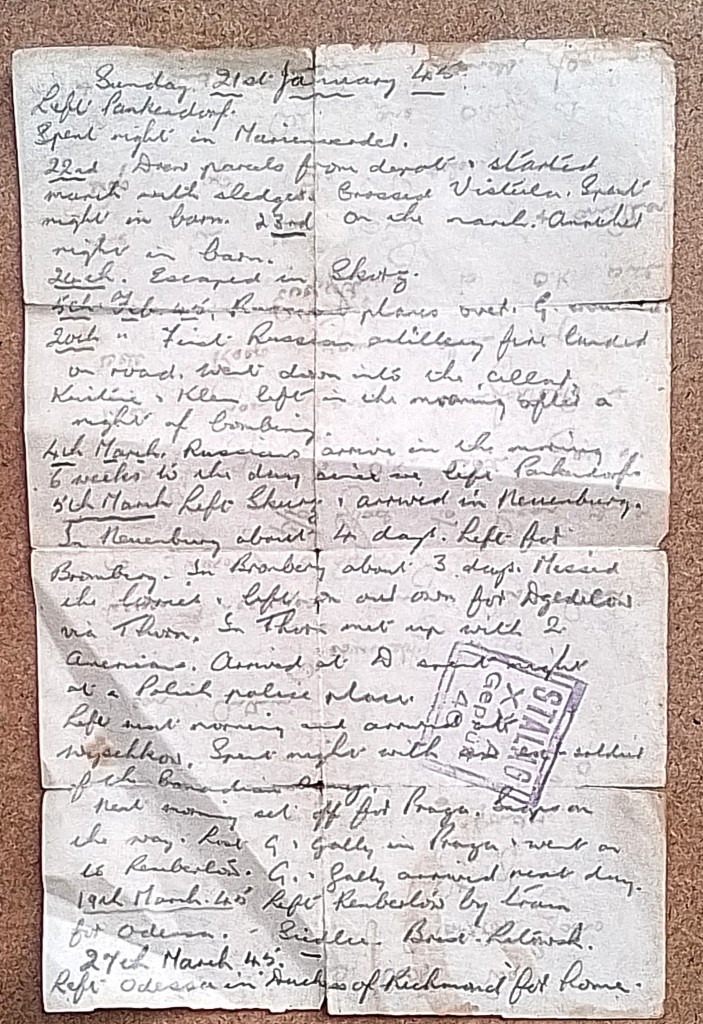
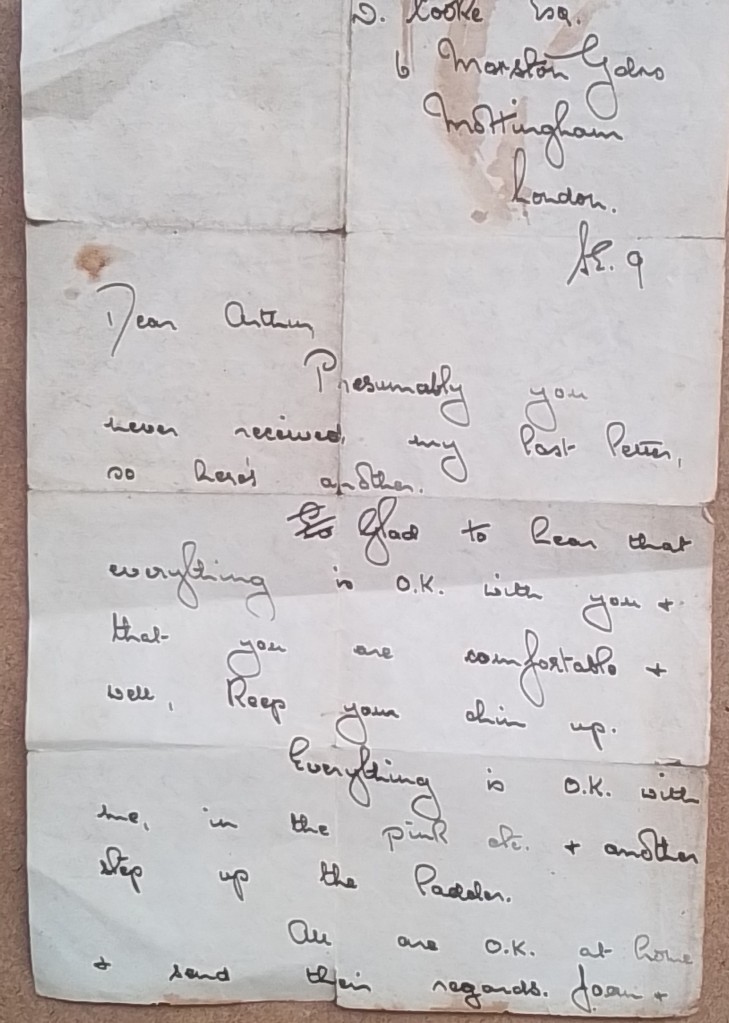
The third, a photocopy of a journal from one of the other soldiers that shared this experience with my father during the escape – eleven pages.
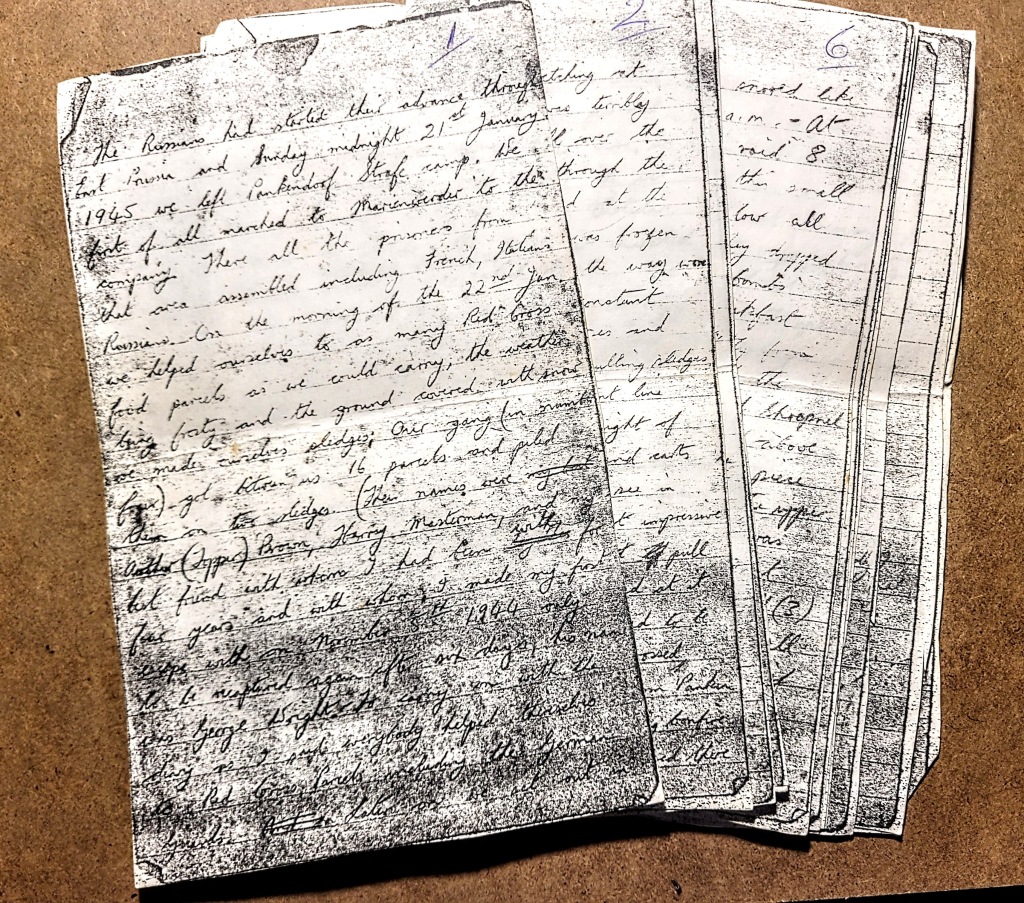
We left the third Episode of this story with my father in a punishment camp in Pankendorf, following his attempts to escape. It was now January 1945. The bitter winter in Poland was particularly severe and everything was covered in snow. The temperature was around minus twenty degrees centigrade.
Things were happening. The prisoners knew that the Russian Army was advancing towards them on the Eastern front.
There were conversations among the prisoners. Would they all be released to fend for themselves? Would they be shot? Would they be marched away from the advancing Russian Army?
January 22nd
On January 21st, at midnight without warning, the prisoners were mustered. They were marched, with no explanations, out of the Pankendorf camp. After a night on the road, they arrived at the town of Marionwerder, where there was a stockpile of Red Cross parcels. They were told to take as many of the parcels as they could carry, as from this point onwards, they would not be receiving any more food from their captors.
My father grouped together with three other prisoners from the Pankendorf camp. Between them, they made two makeshift wooden sledges and loaded them with sixteen Red Cross parcels. They were then ordered to start marching in a column away from the front towards Germany.
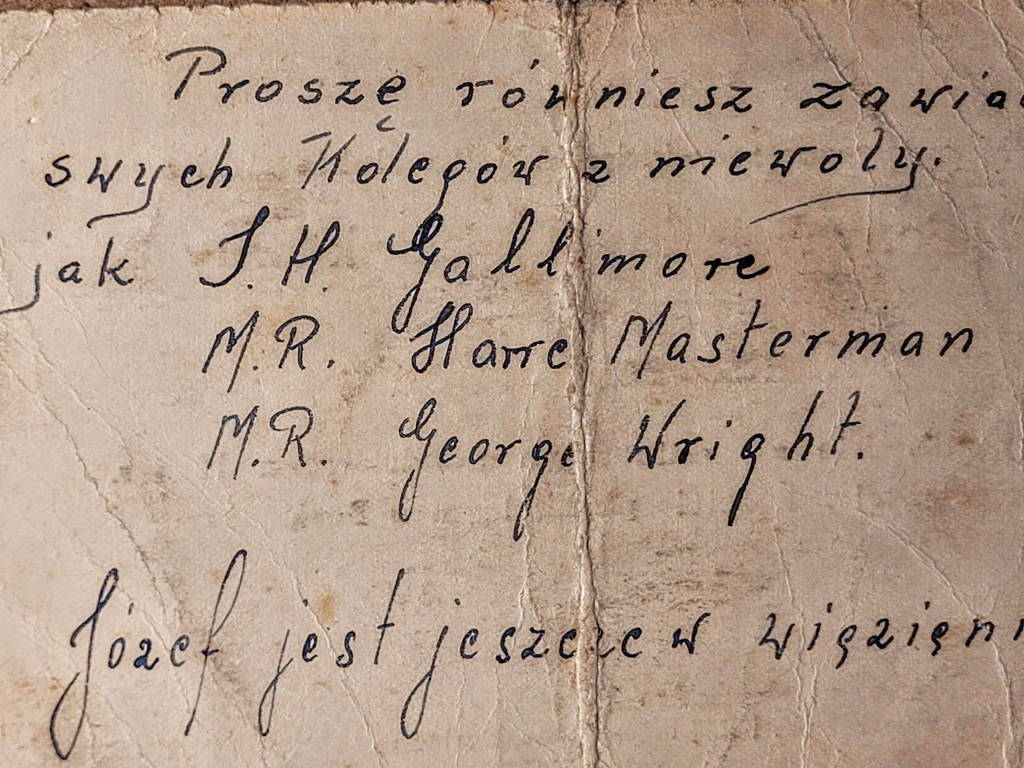
On the road ahead there was complete chaos. Some German forces were marching with the prisoners while , fresh reinforcement troops were coming the other way in order to hold the Russian advance. Not only were there the prisoners and guards advancing along the road, but thousands of local civilians, with horses and carts carrying all of their possessions, fleeing from the approaching front line of battle. They were also only too aware of the stories of savagery, looting and rape which characterized the approaching Russian army.
At dusk, on the 22nd, the column of prisoners reached the river Vistula which was completely frozen over. The horses and wagons were crossing over the ice. The prisoners were made to help the wagons climb up the river bank on the other side of the river as the horses stumbled backwards and the cartwheels slid on the ice.
They marched into the night until finally stopping to sleep in a barn in the early hours of the morning. After a few hours of rest they found their boots had completely frozen. The next day the long hours of marching in the freezing cold continued. They realized that they were in for a long walk which could take weeks or even months. With the extreme cold, limited supply of food and nowhere to sleep, this was a very daunting prospect.
The four soldiers had to come to a decision:
1) -They could continue on the long march and eventually, hopefully be liberated by the English or American troops.
2) – They could escape from the column, hide up, and hope to be liberated by the Russian Army.
They chose option two, and decided to escape from the column as soon as they had a chance.
However this option was not without risks. They would still have to find a place to shelter until the Russians came. They would still need to find food. If captured near the advancing front, they would be shot. They were also worried about the reception they would get from the Russian troops, who would also be “trigger happy” and would not recognise their British uniforms.
In the end, their decision was perhaps the better out of two terrible choices. The book, “The Last Escape” , by John Nichol and Tony Rennell relates the story of the suffering of the prisoners who continued on that “Long March”
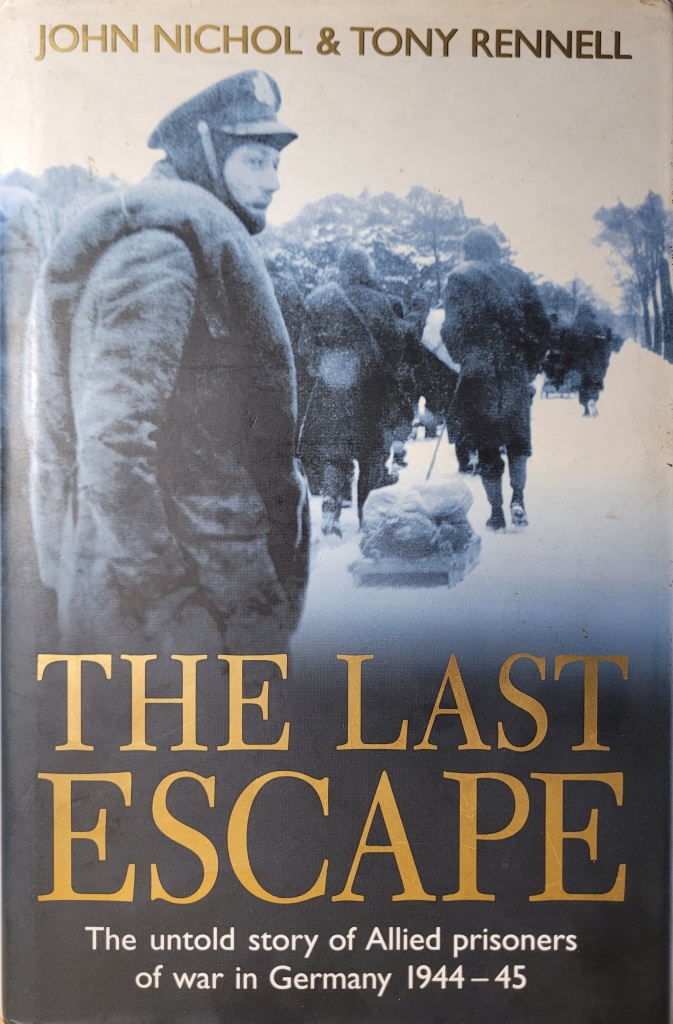
A considerable number of prisoners died on the way during the march, through exhaustion, the extreme cold or simply through hunger. Some prisoners simply collapsed on the side of the road, never to take another step forward.
January 24th
The four comrades were walking in the column of prisoners with their sledges of Red Cross parcels. Little by little they started dropping behind, gradually getting mixed with the refugees. They were looking for the right moment to break away. They entered the small town of Skorcz.
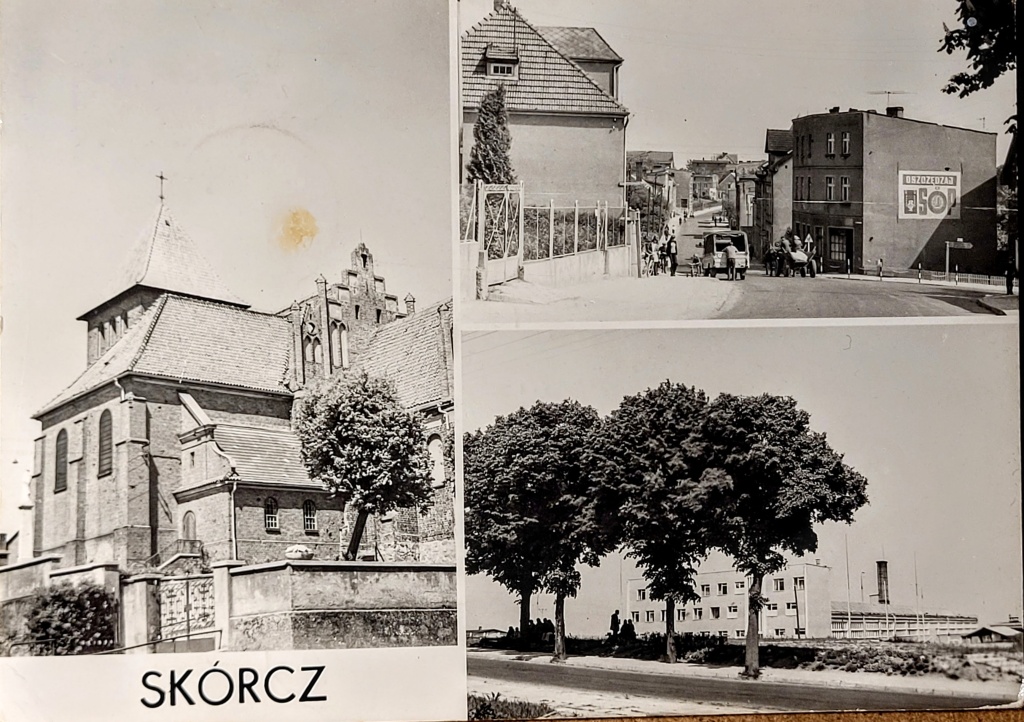
.As they passed a house (see photgraph below) , they saw some young people at the window. They asked them for some water. The occupants of the house invited them in.
Inside the house were three young women and a seventeen year old boy called Klemens.
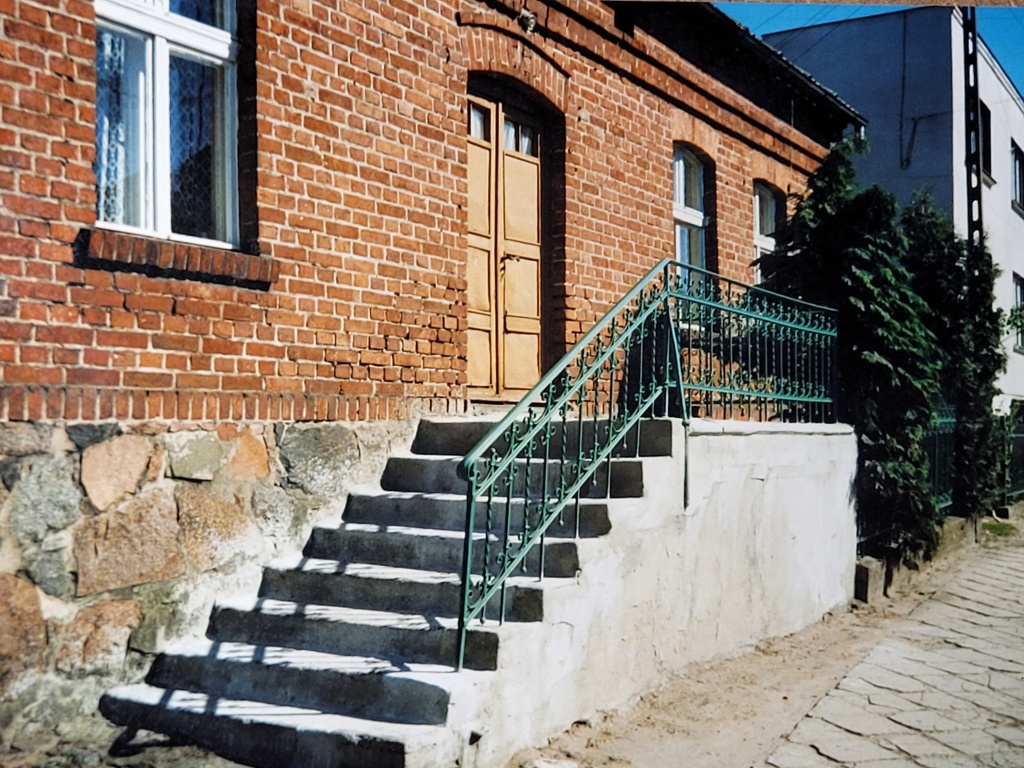
Klemens, confidently informed the four of them, that his mother would help them and that he would take them to his home. They went out and followed the boy at a distance, until they got to the house in the street “3 Novy Swiat” Klemens let them in and introduced them to his mother Marta who was there with her brother Josef.
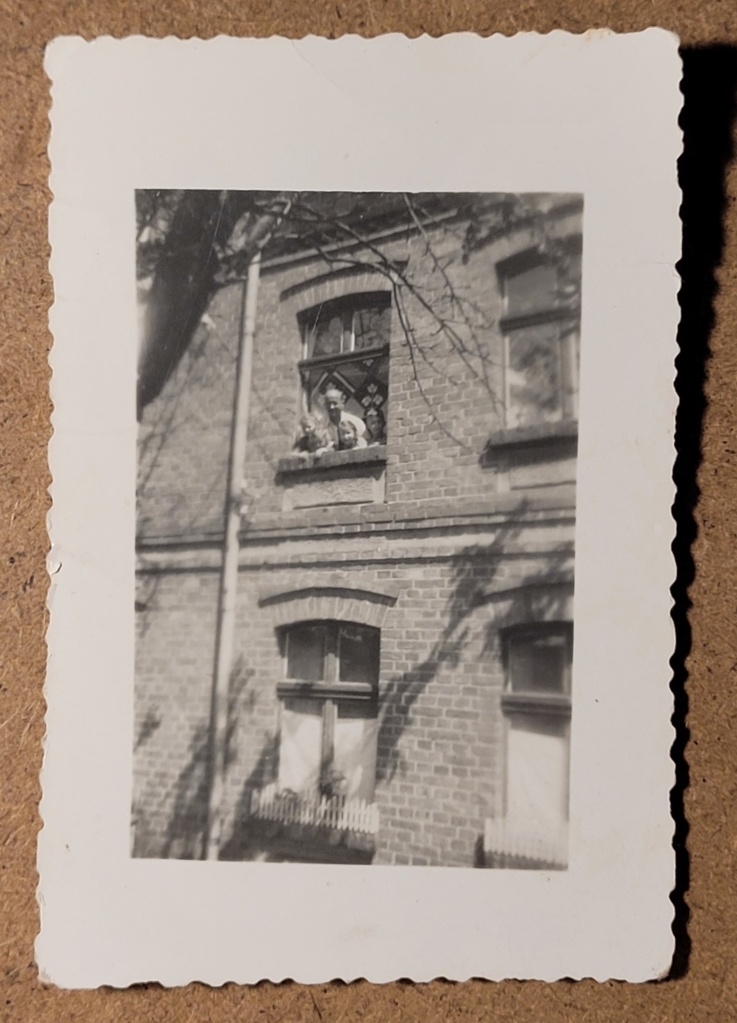
Marta told them that they could stay in the house until the Russians came. My father was obviously worried about her safely and the safety of her family, for if they were caught, she would certainly be shot. This did not seem to worry her.
She told them that her husband had already been killed in the war and that she was now hiding her brother, Josef.
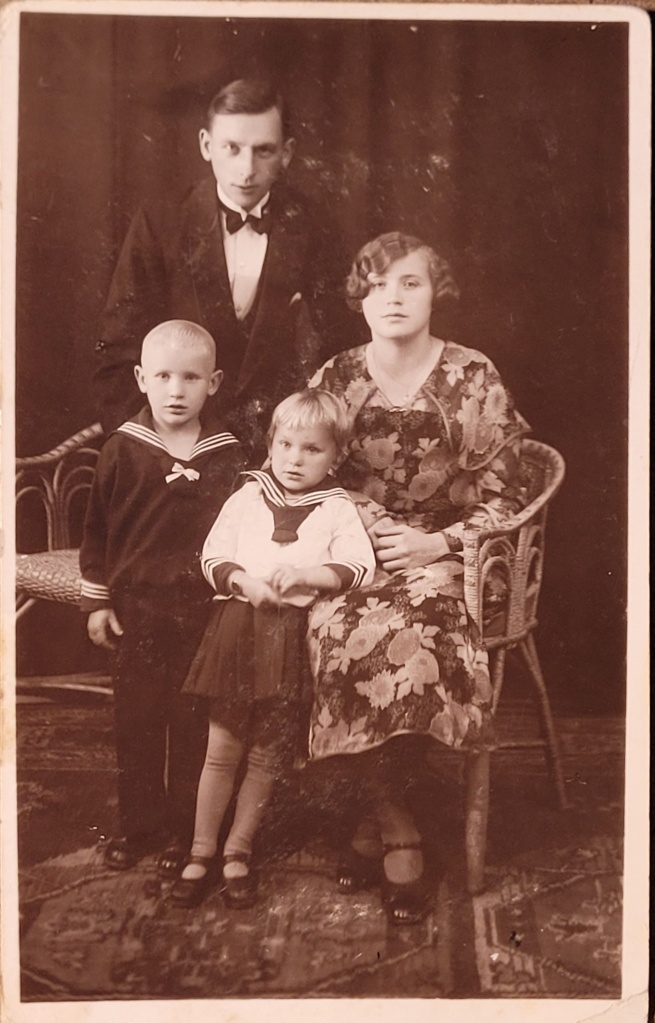
Josef, Marta’s brother was a partisan in the Polish underground. He had been condemned to death, but escaped from his execution during an air-raid. Martha’s view was, “if they catch me with my brother, I’ll be shot anyway.
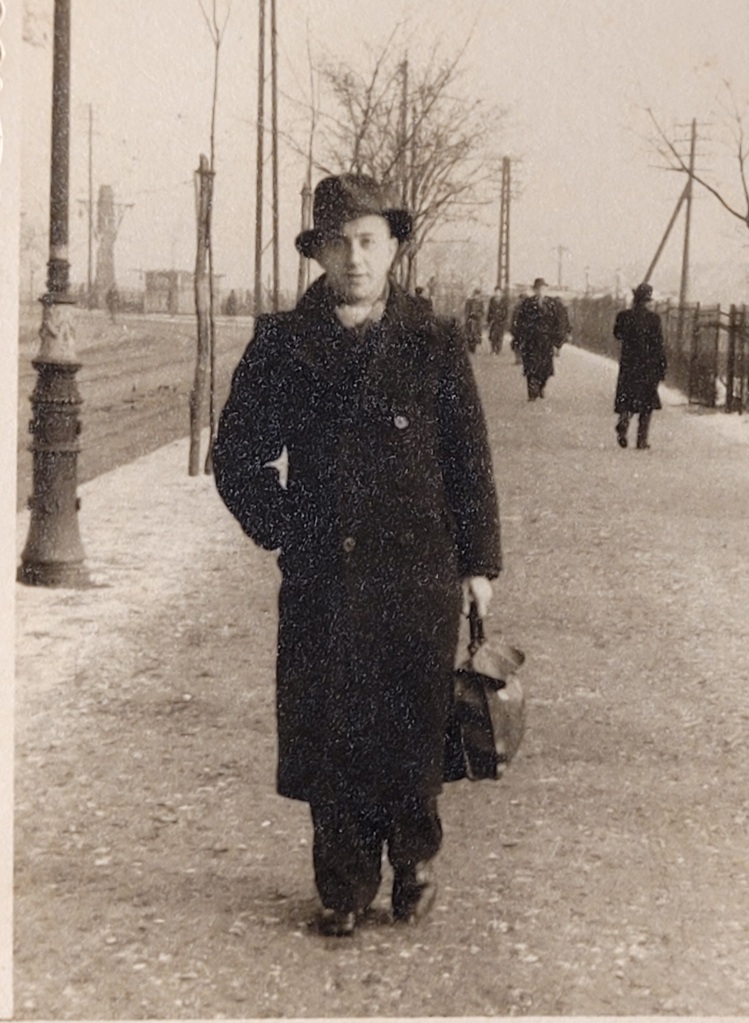
Marta was an extremely brave woman indeed. My father would never forget her selfless action in taking the four desperate prisoners into her home.
And so the four soldiers stayed with Marta, her brother Josef and her two children Klemens and Kristina. They remained there in the house for almost five weeks.
They had escaped…. at least for the time being. They were in hiding, but the situation was still very risky and precarious. However, thanks to Klemens taking them home, and Martha for receiving them, they were out of the cold and had a place to stay.
They now just had to wait for the Russians to come to liberate them …………. it seemed simple…………but it wasn’t!
What happened?……… Find out in the next Episode!!!!!!!!.
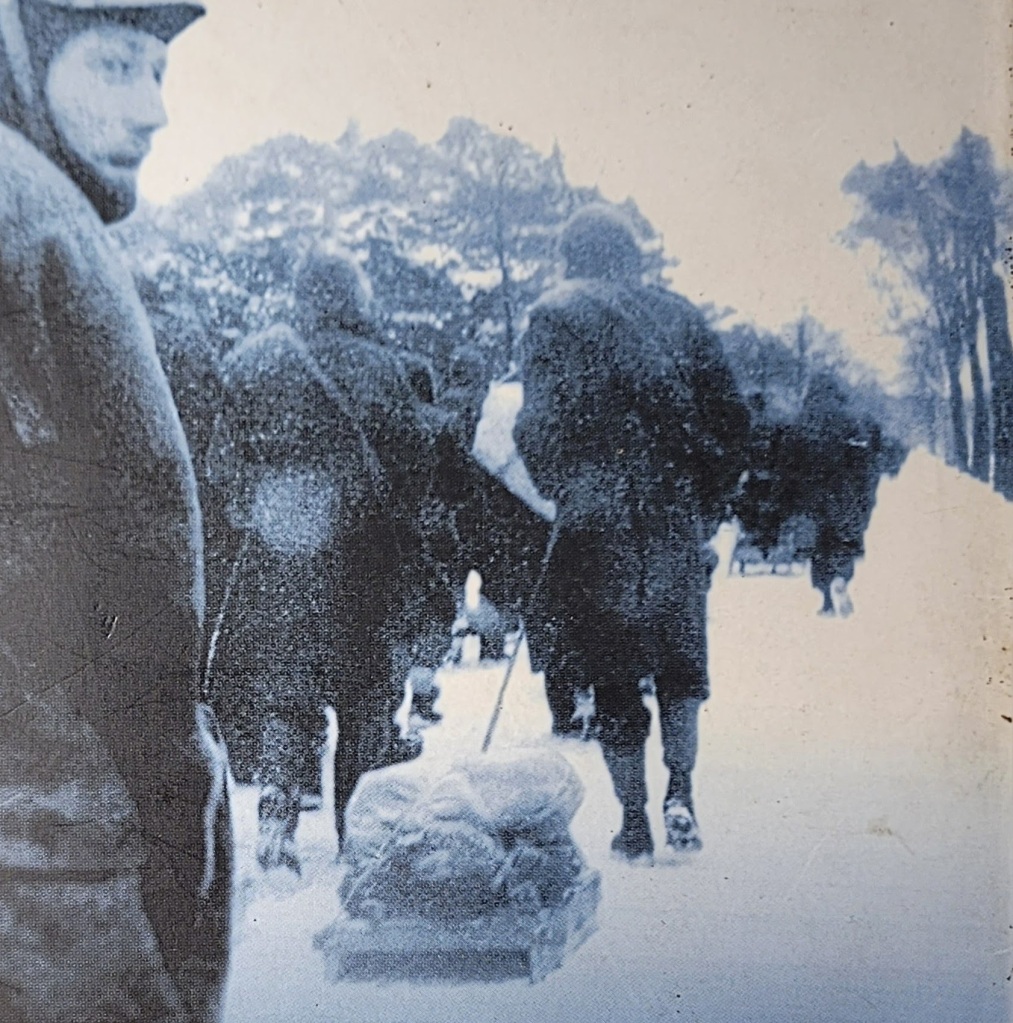
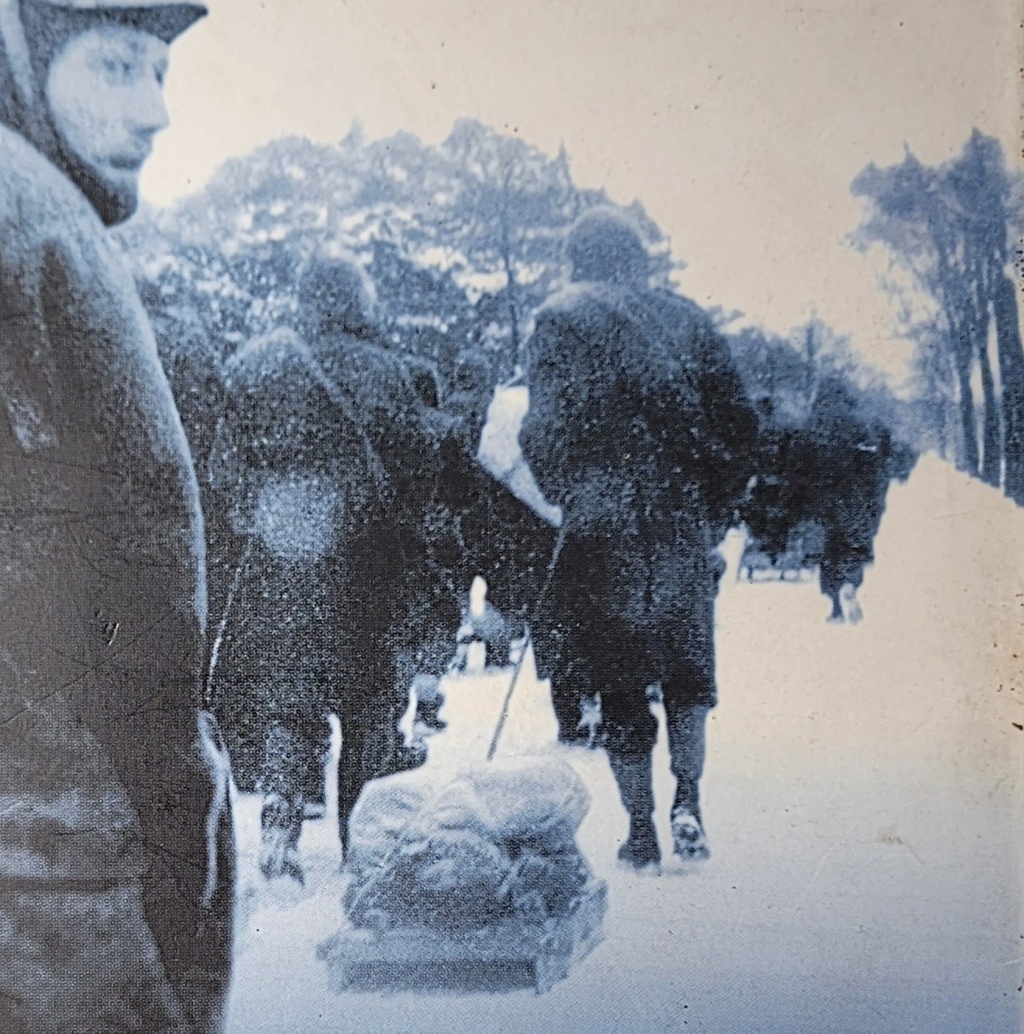
Leave a comment